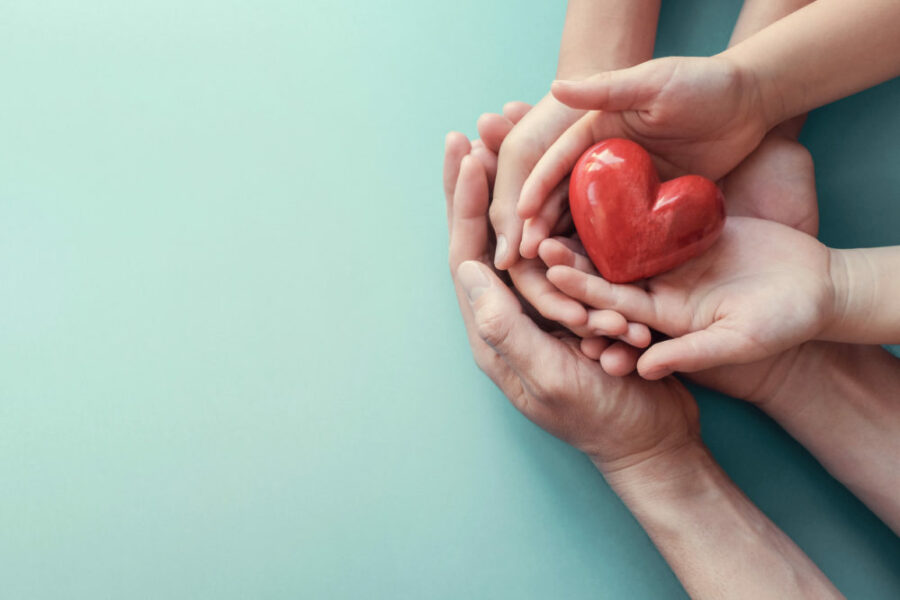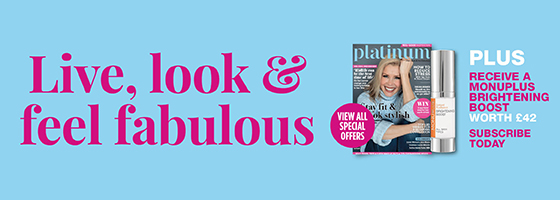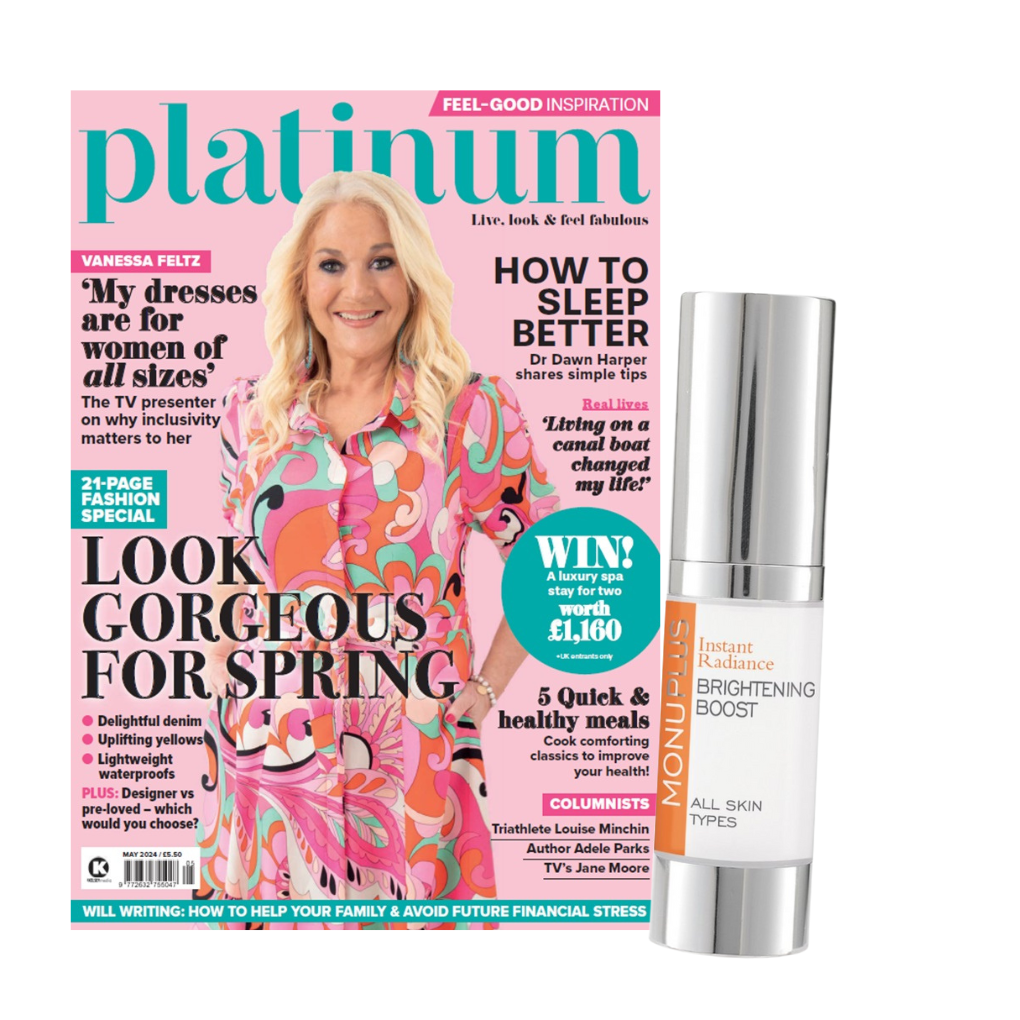Play detective and spot the red flags from your body before they become anything serious, says Louise Pyne. She shares five sign to look out for.
Our bodies naturally change with age. Being in tune with the physical clues it provides can help us to identify underlying problems that may be happening on the inside.
We run an increased risk of nutritional deficiencies as we go through life. This might be a result of changes to our digestive system which makes it harder to absorb nutrients, the onset of menopause, prescription medications and underlying health conditions.
Understanding what’s happening to your body can be incredibly insightful. “The symptoms that we express externally can be a direct reflection of an imbalance in the body. This may be a nutritional deficiency or another system imbalance, for example due to menopause,” explains naturopath and nutritional therapist Caroline Peyton of peytonprinciples.com.
Here, we reveal some of the signs to watch out for, along with some smart solutions to keep you feeling fabulous from the inside out…
Sign 1: dry skin
Skin is more prone to dryness as we get older because the lipid profile decreases, which can leave skin feeling tight and exaggerate the appearance of fine lines and wrinkles. “This can be due to a change in the skin layers, but is sometimes exacerbated by lack of some nutrients and environmental stressors,” says pharmacist Giulia Guerrini of medino.com.
One study in particular showed that 36.2% of postmenopausal women suffered skin dryness. The culprit? A drop in oestrogen and progesterone and changes to the lipid barrier, which causes skin to lose its natural resistance.
“Replenishing essential fatty acids, especially the omega-3 fats EPA and DHA is a must. These fats are called essential since the body cannot make them and they must be obtained from the diet. “Oily fish (salmon, mackerel and sardines) are rich sources of these fats and you should increase your intake to three palm-sized portions of oily fish a week,” advises Caroline. For an extra omega hit, top oily fish with crushed nuts and grill in the oven. Serve with a generous helping of steamed vegetables.
Sign two: thinning hair
Fluctuating hormone levels during menopause mean that hair loss affects up to two thirds of women. Oestrogen and progesterone help hair to grow normally and so when levels dip, hair grows more slowly and the follicles become thinner, which can be extremely disconcerting.
“Hair shedding seems to be more common during the menopause as a lack of oestrogen and progesterone impact hair growth,” says Caroline. With a lack of these hormones, hair growth slows and an increase in male hormones called androgens results in changes to hair follicles, which makes strands appear thinner.
Deficiency in certain minerals like iron can also lead to shedding strands. “Iron is involved in DNA synthesis, including that in hair follicles,” explains GP Dr Nisa Aslam (deep-relief.co.uk). If in the leadup to menopause you’ve suffered heavy periods you may already be low in iron, and as time goes by levels may dip even more. Along with thinning hair, iron deficiency symptoms to watch out for include paleness, fatigue, brain fog and recurrent headaches.
Women over 50 require 8.7mgiron per day and this is perfectly achievable through a balanced diet.
“Although vegetables sources contain iron, plant-based forms are known as non-haem iron, which is much harder to be absorbed from the gut into the body. It is perfectly OK to have some quality meat and some saturated fat in the diet.
“Choose lean mince or a good quality steak, and eat these alongside dark green, leafy vegetables and peppers, which are rich in vitamin C, to encourage iron absorption,” recommends Caroline.
You can request an iron test from your GP to determine your exact levels and if these are low, you may be required to supplement with iron tablets.
Sign three: brittle nails
Just as your skin changes with age, so do your nails and it’s important to care for your cuticles. Fungal infections are quite common and can be a side effect of conditions like diabetes, a weakened immune system or poor circulation.
Ensuring you get good quality nutrition will help the health of your talons.
“First of all biotin, which is a B vitamin (found in nuts like walnuts, and wholegrain like oats) helps the body metabolise fats and protein. A lack of protein or poor metabolism can be a factor in nail health as they are formed from keratin, so load up on protein-rich foods like poultry, eggs, fish and tofu,” advises Caroline.
Women over the age of 50 should aim for around 1-1.2g of protein per kilo of bodyweight per day. A good protein-rich meal would be 100g stir-fried tofu with vegetables, served with 50g quinoa.
Sign four: bad breath
Halitosis can be caused by not drinking enough water or a poor oral care regime, but in other cases, it can be a sign you might be lacking in certain nutrients. “For instance, a lack of zinc is linked with bad breath, and as women get older they often have a zinc deficiency,” explains Giulia.Women require 7mg of zinc daily.
Other signs you might be lacking in this mineral include impaired taste, white spots on the nails and poor wound healing.
“Bad breath can also be caused by a poor digestion or gut bacteria imbalance, in which case supplementing with probiotics or increasing our intake of fermented foods can help,” explains Giulia.
Eating prebiotic foods like oats, artichoke, asparagus and banana can help to enhance the power of probiotics so try to eat two portions of prebiotic foods daily and take a multi-strain probiotic supplement.
Sign five: Bleeding gums
Almost two million people over 65 are likely to be taking at least seven prescribed medicines according to Age UK, and oral health problems are one of the main side effects of medication.
Aspirin, anticoagulants and blood thinners such as warfarin, which help to prevent heart disease, can cause bleeding gums in some patients, while some antidepressants increase the risk of gum disease.
“Vitamin C deficiency is also commonly associated with bleeding gums,” adds Caroline.
“High stress levels deplete vitamin C, so it’s important to keep levels topped up.
“Our adrenal glands (which produce the fight or flight hormones) use up more vitamin C than anywhere else in the body. Make sure you load up on dark green leafy vegetables (broccoli, kale, cabbage, Brussels sprouts), peppers, kiwi fruit, berries of all types and citrus fruit,” she continues.








